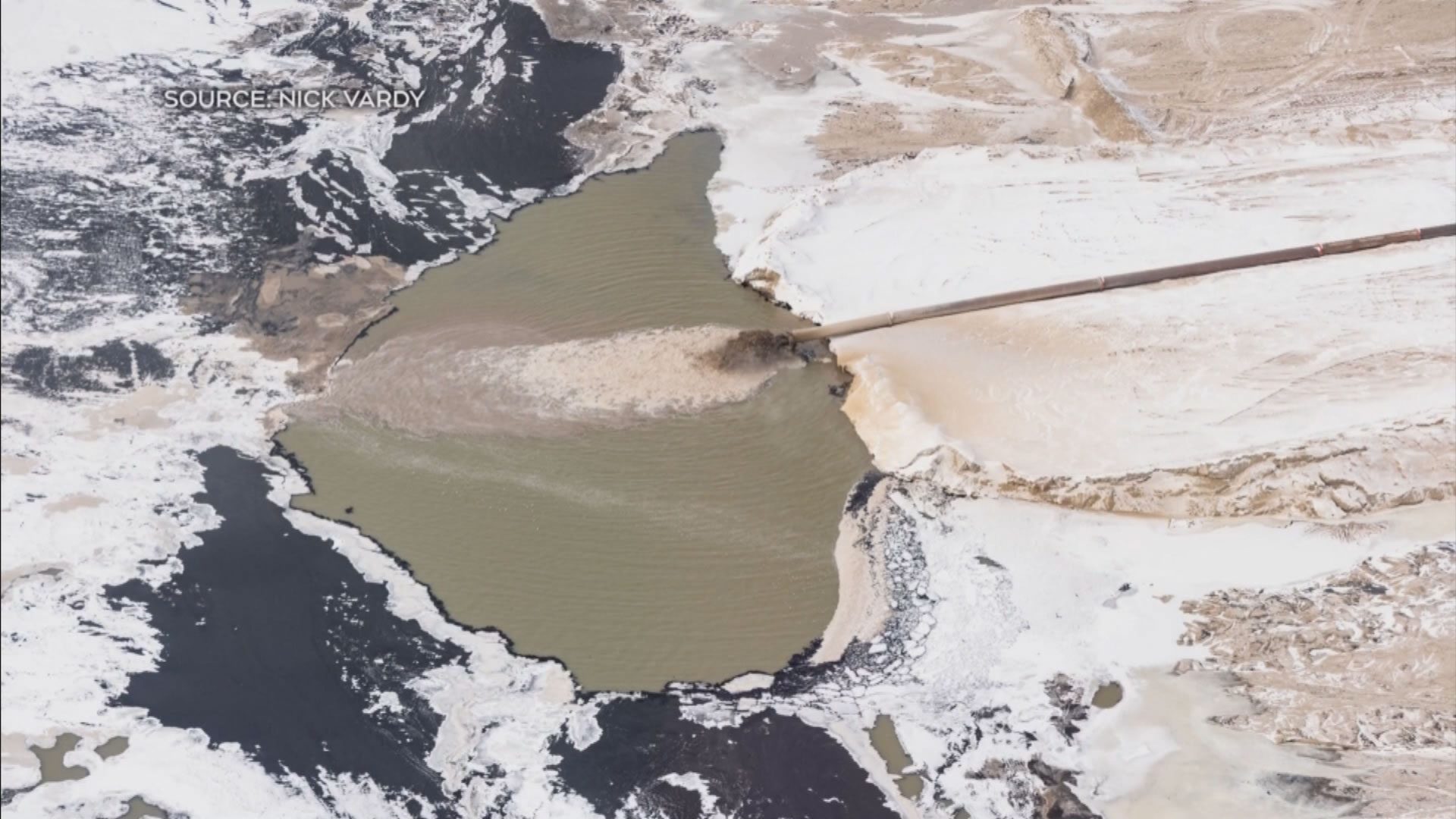The federal government is providing bottled water and mental health services to First Nations struggling to deal with a spill from a tar sands tailings pond that went unreported for months in northern Alberta.
“They’re devastated and their communities are devastated,” Indigenous Services Canada Minister Patty Hajdu said at a press conference in Ottawa on Monday. “They’re afraid that the water is contaminated.
“They have no trust or faith that the testing results are accurate given the fact that both leaders and communities feel that they’ve been misled over the number of months that they haven’t had information from either the Alberta government or Imperial Oil.”
The leakage from the Kearl mine site owned by Imperial Oil north of Fort McMurray happened nine months ago but was only made public last month.

According to Environment Canada, the “seepage is believed to be deleterious, or harmful, to fish.”
The government said enforcement officers issued a “Fisheries Act Direction” to Imperial oil “requiring them to take immediate action to prevent any seepage from entering fish-bearing waters.”
It is still not known how much of the spill has seeped into the surrounding area.
The Kearl mine site is about 570 km north of Edmonton – and 300 km south of Athabasca Chipewyan First Nation and Mikisew Cree Nation. Both are located along the Athabasca River where some fear the contaminants from the leak will end up.
Hajdu said she is in regular contact with both nations.
Environment Minister Steven Guilbeault said there was a complete breakdown in communication between the company and Alberta government over how the wastewater spill was handled.
“I’m very concerned about the reporting gaps,” he said “The seepage was not communicated to affected communities in a timely or appropriate way by the company or provincial regulator. This demonstrates that the system did not work in this case and needs to be examined and strengthened.”
Guilbeault said the federal government has proposed a joint working group between both levels of government and Indigenous communities with participation from oil companies.
The group would give regular updates on remediation and containment plans, he said.
Read More:
While tailings pond leaked, Imperial Oil lobbied Alberta government on ‘cost effective’ regulation
Keepers of the Water concerned tailings pond leak will end up in Athabasca River
However, the environment minister was unable to say what consequences, if any, there would be for Imperial Oil for failing to report the leak in a timely manner.
“There is an active investigation by the enforcement branch of Environment and Climate Change Canada,” he said. “So, I can’t comment on the specific question you are asking. More broadly, as I said, we need to have a better system of reporting and communicating on tailing pond seepage and leakages.”
Hajdu also said, for the time being anyway, the oil company would not be responsible for paying any of the costs of providing bottled water to the communities.
“Well, I think it would be a mistake to not do anything and fight about who is paying for what when people are scared to drink the water. So, the federal government is stepping into the void, quite frankly, and providing clean water while the community is distressed about the safety of its water and we’re saving all our receipts.”
The Athabasca Chipewyan First Nation is holding a town hall meeting on Wednesday to further discuss the emergency situation.









